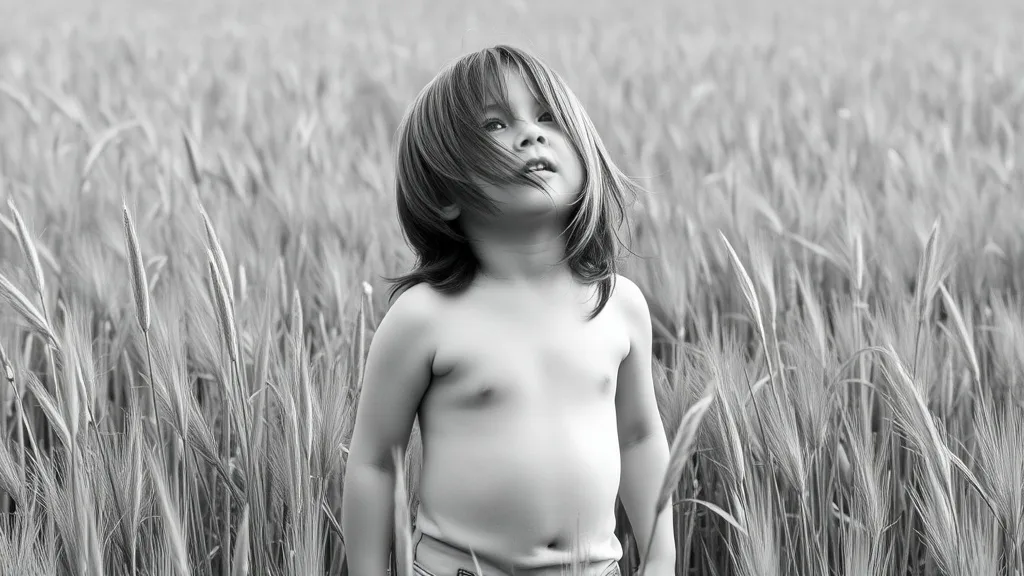5 Demographics of Individuals Prone to Dreams of Faceless Children
Want a Personalized Dream Interpretation?
Curious about how people like you interpret this dream symbol? Explore personalized interpretations tailored to your demographic. Get personalized insights for free!
Get Free Interpretation Now →Table of Contents
1. Victims of Childhood Trauma
For victims of childhood trauma, dreams of faceless children can be particularly poignant and revealing. These dreams often symbolize the hidden pain and unresolved trauma that the dreamer is carrying within them. The lack of faces on the children represents the anonymity and facelessness of the abuse or trauma that was inflicted upon them. The presence of children in the dream may also evoke feelings of vulnerability and helplessness that the dreamer experienced during their childhood. These dreams can be a manifestation of the dreamer's longing for a safe and nurturing environment that they were denied as a child. By exploring the symbolism and context of these dreams, victims of childhood trauma can gain insights into the impact of their past experiences on their present lives.
2. Individuals with Anxiety Disorders
Faceless children often reflect a sense of anonymity and uncertainty that can be particularly unsettling for individuals with anxiety disorders. Their absence of facial features can symbolize a lack of personal identity or a sense of detachment from oneself. This can trigger feelings of isolation, inadequacy, and a profound fear of the unknown.
Dreams of faceless children may also represent a fear of rejection or abandonment, as the absence of faces suggests a lack of connection and support. The dream may be expressing a subconscious concern about losing oneself in relationships or feeling unseen and undervalued.
Moreover, the facelessness can evoke a sense of mystery and danger, leaving dreamers feeling vulnerable and uncertain about their safety. This can exacerbate anxiety levels, leading to increased worry and a heightened state of vigilance.
3. Survivors of Abuse or Neglect
For survivors of abuse or neglect, dreams of faceless children can evoke profound emotions and trigger memories of their traumatic experiences. These dreams may symbolize:
-
Dissociation: The faceless children represent aspects of the dreamer's identity that were lost or suppressed during the abuse. The lack of features reflects the fragmented and dissociated sense of self that many survivors experience.
-
Emotional Detachment: The faceless children may symbolize a disconnect from emotions, reflecting the numbness or avoidance that survivors often develop as a coping mechanism. The absence of faces suggests difficulty in seeing or acknowledging their own feelings.
-
Vulnerability and Helplessness: Dreams of faceless children can evoke feelings of helplessness and vulnerability, recalling the power imbalance and fear experienced during the abuse. The children's lack of faces emphasizes their dependence and the dreamer's inability to protect them.
-
Lost Potential: The faceless children may represent lost opportunities for growth and development due to the trauma. The absence of faces symbolizes the unfulfilled potential and the shattered hopes that survivors may grapple with.
-
Need for Healing and Connection: These dreams can be a manifestation of the dreamer's need for healing and connection. The faceless children represent the parts of themselves that need to be acknowledged, embraced, and reintegrated into their identity.
4. Those Experiencing Grief or Loss
Faceless Children in Dreams of Grief and Loss

When those grappling with the pain of grief or loss dream of faceless children, it can evoke a profound sense of longing and emptiness within the subconscious mind. These ethereal figures may symbolize the absence of the departed, leaving the dreamer with an ache for faces they can no longer see.
The facelessness of these children highlights the void left behind by the loss, amplifying the painful realization of what has been taken away. It can represent a sense of detachment from the world, as the dreamer struggles to find solace and connection amidst their sorrow.
Furthermore, these faceless children often evoke feelings of helplessness and vulnerability. The inability to discern their identity symbolizes the uncertainty and disorientation that often accompany grief. The dreamer may feel lost and adrift, unsure of how to navigate the path ahead without the guidance of those they have lost.
However, these dreams can also offer a glimmer of hope. The facelessness of the children can suggest that the dreamer's memories of the departed are not fully formed or are still being processed. It can be an invitation to explore the complexities of grief and to find meaning in the absence.
Through these dreams, the grieving soul may come to realize that the loss of a loved one does not erase their presence entirely. Their memory lives on, shaping the dreamer's journey and offering comfort in times of darkness.
5. Parents or Caregivers of Children
Faceless Children in Dreams: A Reflection for Parents and Caregivers
For parents and caregivers, dreams of faceless children can evoke a range of emotions. These dreams often symbolize the complexities and anxieties of caring for young lives.
The facelessness of the children represents the unknown or uncertain future that lies ahead for both the child and the dreamer. It can also reflect the sense of responsibility and vulnerability that parents feel towards their children.
Dreaming of faceless children may also be an expression of the dreamer's fears or concerns about their ability to provide adequately or to protect their children. It can evoke feelings of inadequacy or frustration, as the dreamer struggles to meet the demands of parenthood.
Conversely, such dreams can also represent the dreamer's hope for the future and their desire to see their children grow and thrive. The facelessness allows the dreamer to project their own hopes and aspirations onto the child, creating a blank canvas upon which they can envision their child's potential.
Understanding the symbolism of faceless children in dreams can help parents and caregivers grapple with the challenges and rewards of their role. It can provide insights into their own anxieties and provide opportunities for reflection and growth.
Back to interpretation of faceless children

